- What are Locking Tuners?
- The Pros of Locking Tuners
- The Cons of Locking Tuners
- Who makes Locking Tuners?
- Conclusion
The humble tuning machines may not be the most exciting part of your guitar, but they play a crucial role in its performance and sound. Locking guitar tuners have become a popular upgrade option for guitarists everywhere as they offer improved tuning stability with minimal fuss. But what are locking tuners and how do they work?
What are Locking Tuners?
Locking tuners work just like regular tuning machines but they are designed to improve tuning stability and make string changes much faster. They typically feature a pin or retaining mechanism that clamps the strings in place, preventing them from slipping when you’re playing. By “locking” the strings in place, locking tuners actually remove the need to wrap the strings around the tuner posts. This simple feature makes string changes much quicker, which is particularly useful if you need to replace a string at a gig!
The benefits of locking tuners are perhaps most noticeable on tremolo-equipped guitars, such as a Fender Stratocaster or PRS Custom 24. When you use a tremolo arm, the winding on the string posts loosens as the tension in the strings fluctuates. The same issue occurs when you bend the strings with your fingers. In an ideal world, when the strings return to their “zero” position, the winds around the string posts will also return to their original position. Unfortunately though, this is not always the case, and it means the guitar will be slightly out of tune. By not having to wrap the strings around the posts, locking tuners offer superior and a more consistent tuning stability.
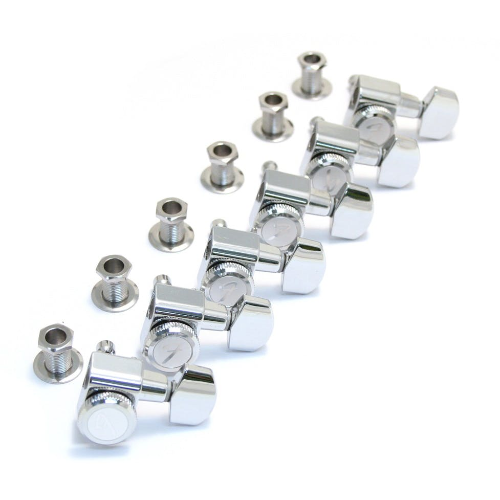
Fender locking tuners
The Pros of Locking Tuners
- Superior tuning stability – You’ll notice your guitar stays in tune better when you use a tremolo arm or perform extreme string bends.
- Faster string changes – By not having to wrap the strings around the string posts, you’ll save time when it comes to replacing your strings.
- Affordable upgrade option – Locking tuners are a great way of upgrading your guitar’s performance with prices starting at around £70 for a decent set.
- Minimal headstock modification – In most cases, locking tuners will slot seamlessly into the existing holes on your guitar’s headstock, so you won’t have to drill lots of extra holes!
The Cons of Locking Tuners
- Not 100% Accurate – Whilst locking tuners will improve the tuning stability of your guitar, they are not perfect.
- Extra weight – Some locking tuners can add some weight to the headstock end of your guitar which can lead to neck dive.
- Are they entirely necessary? – Many pro guitarists and guitar techs will argue that if a guitar has been strung “properly”, tuning won’t be an issue. We’ll leave it up to you to decide on this one!
- Alters your guitar’s appearance – There’s no getting around this; when you start replacing things on your guitar, it’s going to look different! For many players, the benefits of locking tuners will outweigh the changes in appearance, but it’s something to think about.
Who makes Locking Tuners?
Nowadays, there are many companies who make locking tuners, but we recommend sticking to reputable brands for the best results. You can’t really go wrong with anything from Gotoh, Grover, Sperzel, Schaller or Fender. All of these brands have long standing reputations for producing reliable, quality products. In most cases, they will offer something that looks very similar to your existing tuners for a like-for-like switch.



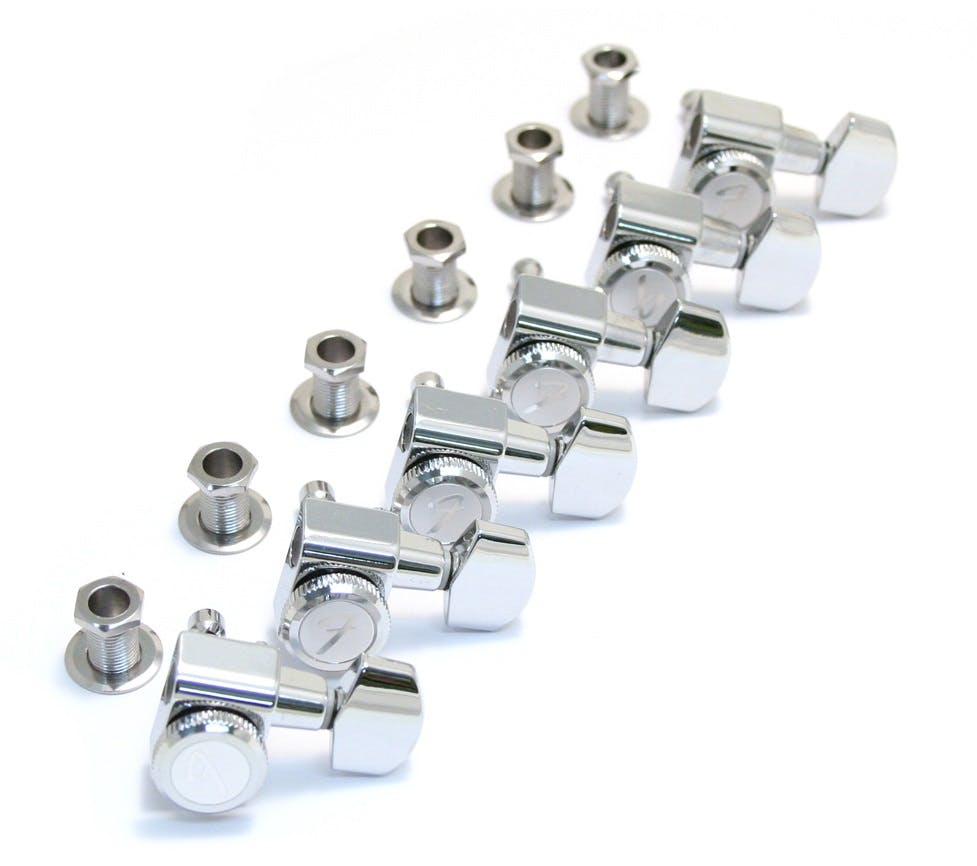
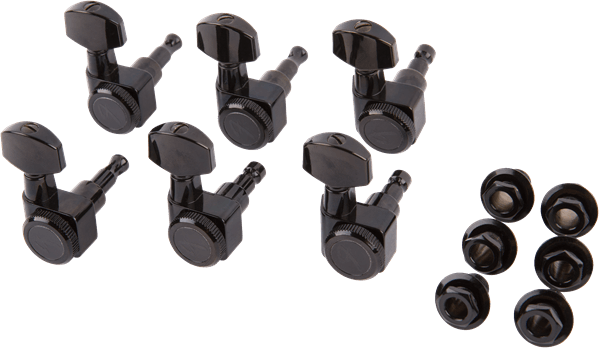
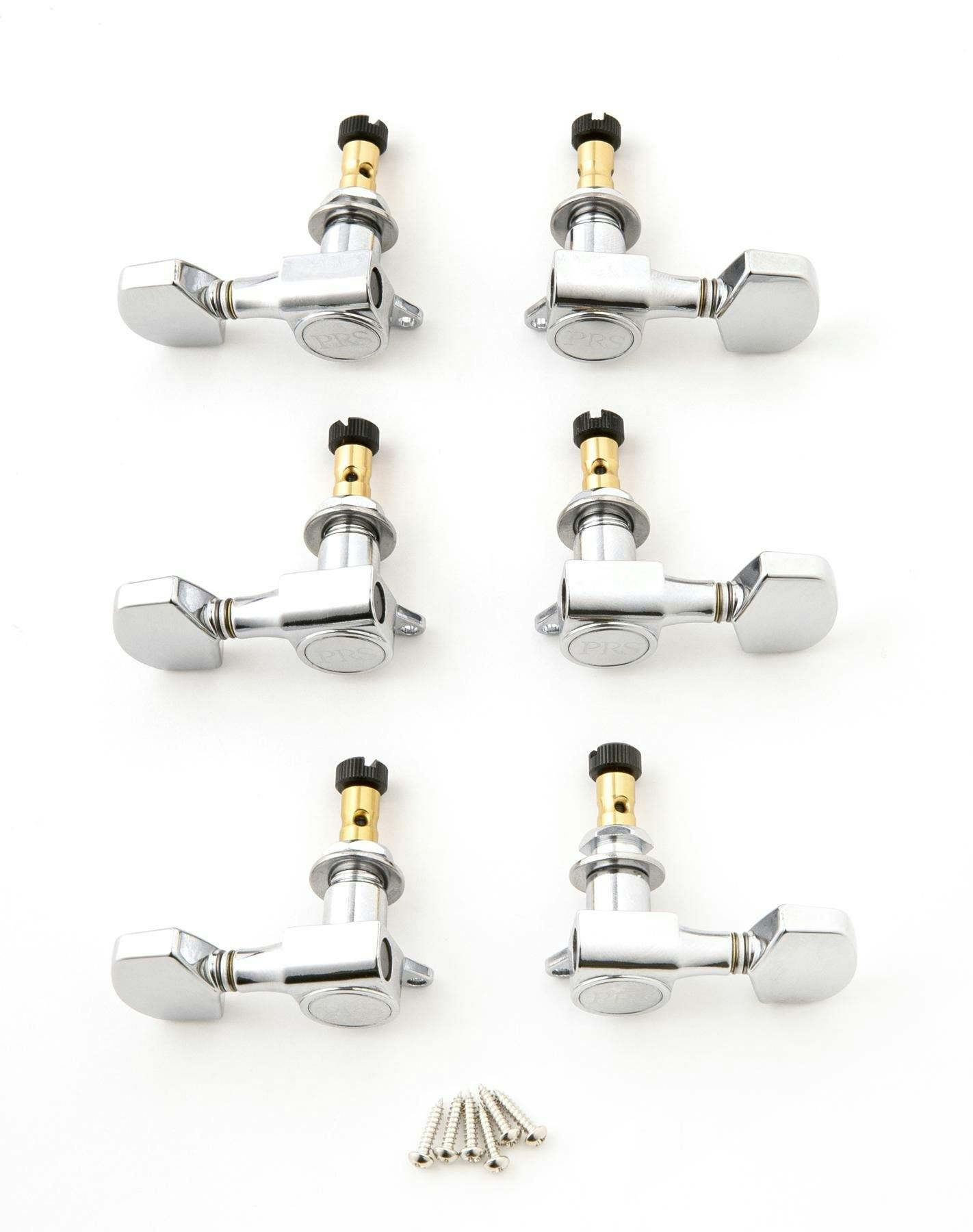
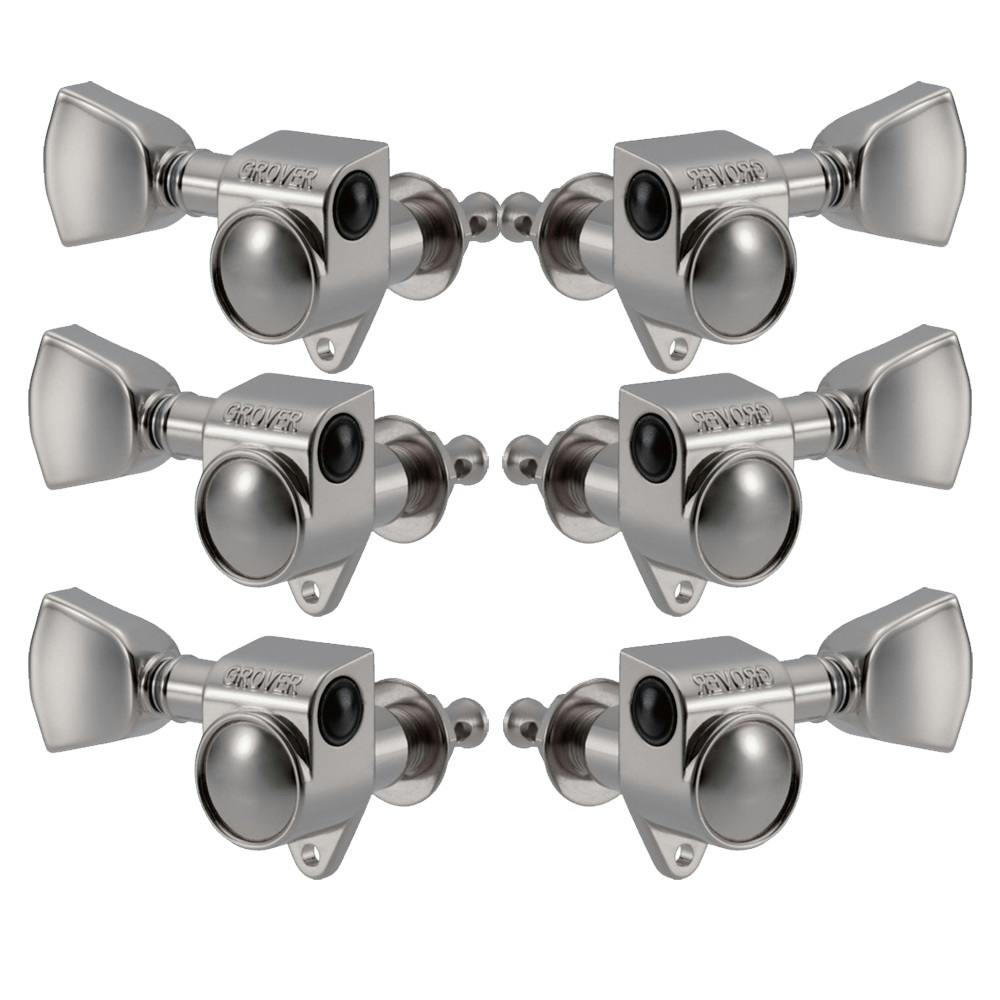
Responses & Questions